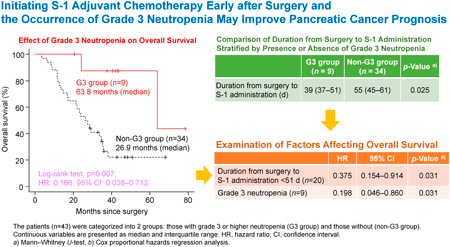- J-STAGE home
- /
- Biological and Pharmaceutical ...
- /
- Volume 48 (2025) Issue 2
- /
- Article overview
-
Yusuke Noguchi
Corresponding author
Department of Pharmacy, Japanese Red Cross Kyoto Daini Hospital, 355–5 Haruobicho, Kamanza-dori Marutamachi-agaru, Kamigyo-ku, Kyoto 602–8026, Japan
-
Ryo Inose
Laboratory of Pharmacoepidemiology, Kyoto Pharmaceutical University, 5 Misasagi Nakauchi-cho, Yamashina-ku, Kyoto 607–8414, Japan
-
Tatsuya Ohtsubo
Department of Pharmacy, Japanese Red Cross Kyoto Daini Hospital, 355–5 Haruobicho, Kamanza-dori Marutamachi-agaru, Kamigyo-ku, Kyoto 602–8026, Japan
-
Daisuke Kobayashi
Department of Pharmacy, Japanese Red Cross Kyoto Daini Hospital, 355–5 Haruobicho, Kamanza-dori Marutamachi-agaru, Kamigyo-ku, Kyoto 602–8026, Japan
-
Yoshitaka Kato
Department of Pharmacy, Japanese Red Cross Kyoto Daini Hospital, 355–5 Haruobicho, Kamanza-dori Marutamachi-agaru, Kamigyo-ku, Kyoto 602–8026, Japan
-
Yuichi Muraki
Laboratory of Pharmacoepidemiology, Kyoto Pharmaceutical University, 5 Misasagi Nakauchi-cho, Yamashina-ku, Kyoto 607–8414, Japan
-
Kanji Tomogane
Department of Pharmacy, Japanese Red Cross Kyoto Daini Hospital, 355–5 Haruobicho, Kamanza-dori Marutamachi-agaru, Kamigyo-ku, Kyoto 602–8026, Japan
2025 Volume 48 Issue 2 Pages 132-136
- Published: February 20, 2025 Received: September 06, 2024 Released on J-STAGE: February 20, 2025 Accepted: January 05, 2025 Advance online publication: - Revised: -
(compatible with EndNote, Reference Manager, ProCite, RefWorks)
(compatible with BibDesk, LaTeX)


